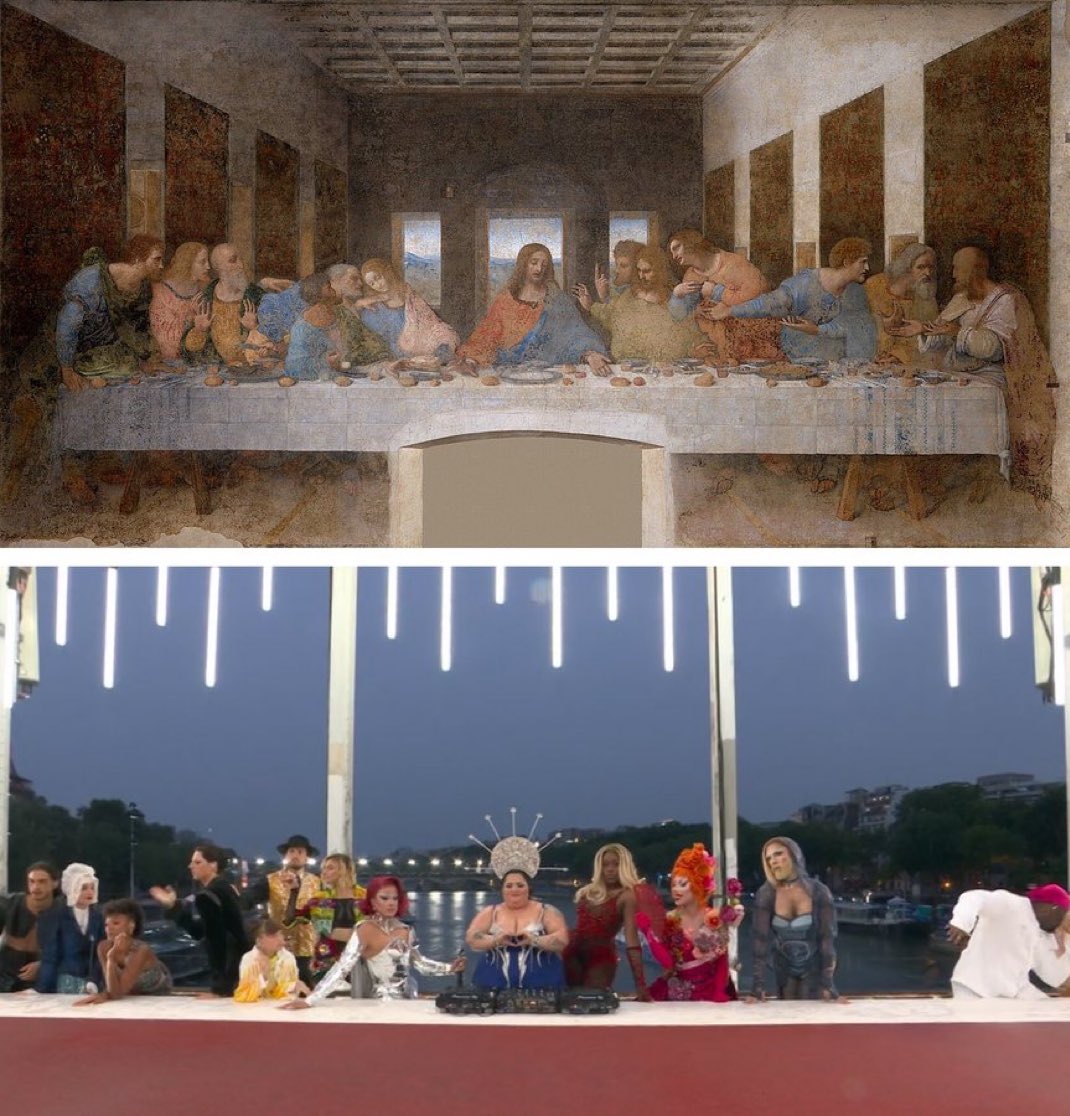The opening ceremony of the Paris 2024 Olympics has ignited significant controversy due to a performance that featured drag queens reenacting the Last Supper, which many deemed disrespectful to Christian values. Critics, including Turkish President Tayyip Erdoğan and Kansas City Chiefs player Harrison Butker, condemned the portrayal as blasphemous and immoral, highlighting the inclusion of a child in the performance as particularly troubling. The social media backlash was swift, with prominent figures like Elon Musk labeling the act as “extremely disrespectful to Christians.” The event organizers are facing mounting pressure to address the outrage stemming from this provocative interpretation of a sacred religious scene, which has raised questions about the appropriateness of such representations in a global sporting event.
Editor’s Note: The ongoing push for the transgender agenda in society, particularly as seen in recent events surrounding the Paris 2024 Olympics, raises significant concerns about its implications for societal order and cohesion.
CCH believes that it is important to respect the right and dignity of every human being to live their lives the way they please, regardless of their sex, gender, race, etc. However, we find that the aggressive promotion of the transgender agenda has become perverse and has often come at the expense of broader societal values and norms that even non-Christians like Erdogan feel violated.
Thomas Jolly’s approach to ” celebrating tolerance” has led to a divisive atmosphere. Artistic expressions, like the controversial performance in Paris, prioritize provocative statements over respectful dialogue with diverse communities.
The problem with the transgender agenda, as it manifests today, is that it insists on prioritizing gender identity over biological realities, which has created tensions that undermine traditional frameworks of understanding gender and sexuality. It leads to confusion and conflict within society (for example, the transgender community’s insistence on the use of their preferred pronouns, which confounds the already complicated English grammar). It has prevented the open discourse regarding the call for “equality” for the LGBTQIA++ community, labeling anyone who attempts to open a conversation on the potential impact of the transgender agenda on women’s rights and spaces as either homophobic or misogynist.
All our progress on human rights and bilateral communication has gone out the window as people take sides and refuse to let others get a word in. In their desire to finally be recognized, some members of the LGBTQIA++ have themselves become the people they hated – the people who hurt them, marginalized them, placed them in a corner, and treated them inhumanely.
We had prepared a specific ending for this article: “As we navigate these complex dynamics, it is crucial to foster an environment where all voices can be heard, ensuring that the pursuit of equality for transgender individuals does not inadvertently marginalize or alienate others.” But as we near the end of this article, these words feel powerless compared to these words: “we become what we hate.”
In 1971, when mainstream media were still truth-tellers, the New York Times released an article entitled We Become What We Hate. That article traced why generations of radicals and changemakers have failed to transform society. It illustrated clearly the paradox of opposites where “the very nature of passionate conflict…turns one into his own enemy”. George William Russel developed this into a principle of political science: “By intensity of hatred, nations create in themselves the characters they imagine in their enemies. Hence it is that all passionate conflicts result in the interchange of characteristics.”
If we continue down this path of blaming, condemning, and avoiding true dialogue to resolve this issue, we are all victims of our own making. There are people out there who stand to profit from the continued societal discord between what has been called the “transgender community” and the “conservative community.” But really, we are all part of one HUMAN community. Why can’t we all stop and reassess how we have contributed to the discord so that we can move towards a truly inclusive, dignified existence?
Read Original Article
Read Online
Click the button below if you wish to read the article on the website where it was originally published.
Read Offline
Click the button below if you wish to read the article offline.
